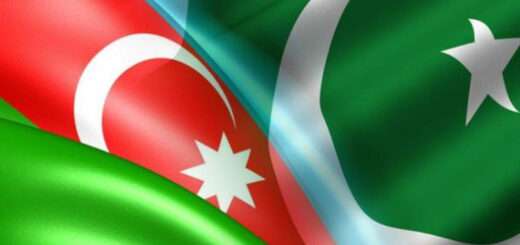US ambassador sparks scandal in Turkey over Patriarch Bartholomew’s title

Recent remarks by the United States Ambassador to Ankara, Tom Barrack, referring to Ecumenical Patriarch Bartholomew with the title “Ecumenical Patriarch,” have ignited a wave of controversy and strong reactions across Turkey.
Ambassador Barrack, who also serves as Donald Trump’s special envoy for Syria, was accompanied by officials from the U.S. Consulate General in Istanbul and his young son, during the meeting with Patriarch Bartholomew on 11 August. Topics reportedly discussed included the situation of Christians in Syria, the reopening of the Heybeliada Seminary, and the status of the Greek Orthodox community in Turkey.
Barrack’s remarks concluded with a message emphasising unity among different Christian denominations, which some interpret as an effort to foster interfaith solidarity amid regional tensions.
The term “ecumenical,” implying universal spiritual leadership in the Orthodox Christian world, is not recognized by the Turkish government, which views it as lacking legal basis under Turkish law and the Treaty of Lausanne. This incident has reignited a long-standing debate over the Patriarch’s status, raising diplomatic tensions between Türkiye and the United States.
The Ecumenical Patriarchate, historically based in Istanbul’s Phanar district, serves as the spiritual center for Orthodox Christians globally. Patriarch Bartholomew, the current leader, is recognized by many Orthodox communities as the “Ecumenical Patriarch,” a title denoting universal authority.
The term “ecumenical” derives from the Greek “oikoumenē,” meaning “worldwide” or “universal.”
However, Ankara officially recognises him solely as the religious leader of the Greek Orthodox community in Istanbul, with no international jurisdiction.
The Treaty of Lausanne (1923), a foundational document for modern Turkey, does not explicitly grant the Patriarchate ecumenical status. Turkish officials argue that the Patriarch’s role is limited to religious duties within Turkey, without political or international authority. While negotiation minutes from the treaty suggest the Patriarchate was permitted to remain in Turkey on the condition of abstaining from political activities, no such provision appears in the final text. This ambiguity fuels ongoing disputes over the use of the “ecumenical” title.
Turkey’s position and legal boundaries
Turkish authorities view the use of the “еcumenical” designation by foreign diplomats or states as a breach of sovereignty and a potential political provocation. Ankara considers such references as “an attack on the sovereign rights of the Turkish state,” emphasizing that the title has no basis in international agreements or domestic law.
Historically, the Turkish state has maintained a cautious stance toward the Patriarchate’s status. While some Turkish officials, including President Recep Tayyip Erdoğan, have expressed a degree of tolerance – acknowledging that the title does not personally bother him – the official position remains firm.
In 2020, the Turkish Presidency used the term “Ecumenical Patriarch” in an official invitation – a rare acknowledgment that sparked renewed debate. Most recently, in 2024, after the Patriarch used the title in an international document, Turkey reiterated its stance that the status of the Patriarchate remains unchanged, reaffirming that the “Ecumenical” title is not recognised domestically.
Critics within Turkey, including Şükrü Sina Gürel, a former Foreign Minister and current Vice President of the Zafer Party, have called on Turkish authorities to uphold their commitments under the Treaty of Lausanne. Gürel emphasized that the Patriarch’s residence and activities are conditioned on refraining from political engagement, citing concerns over recent political actions by the Patriarchate – particularly its involvement in Ukraine’s church affairs, which he views as political interference.
Gürel advocates for a dual approach: on the one hand, engaging with the U.S. to clarify Turkey’s position and, if necessary, issue warnings or consider declaring the U.S. ambassador persona non grata. On the other hand, he advocates a firm stance against the Patriarchate, making it clear that the use of the “ecumenical” title is not recognised and could jeopardize the Patriarchate’s status in Turkey, potentially leading to its expulsion if political activities continue.
This incident underscores the complex balance between religious authority, national sovereignty, and international diplomacy in Turkey.
The use of “ecumenical” by Barrack, especially given the timing surrounding his meetings with the Patriarch and U.S. officials, is seen as a provocative move that challenges Turkey’s sovereignty and the legal boundaries set by its treaties.
Upcoming meeting of Patriarch Bartholomew with Trump
In September, Patriarch Bartholomew will undertake a significant visit to the U.S., where he will meet with President Donald Trump and participate in various high-level events.
His itinerary includes addresses at the Council on Foreign Relations and a farewell dinner at Rockefeller Center, highlighting his role as a global religious leader.
The visit also underscores the ongoing diplomatic and religious significance of the Patriarchate, which continues to navigate complex relations with Turkey and the international community.
The controversy over the use of “еcumenical” reflects broader Turkey’s firm stance underscores its desire to control the narrative and affirm its sovereignty over the Patriarchate’s status. Meanwhile, the evolving relationship between the Patriarchate, the U.S., and Turkey remains a sensitive and complex aspect of regional geopolitics.





